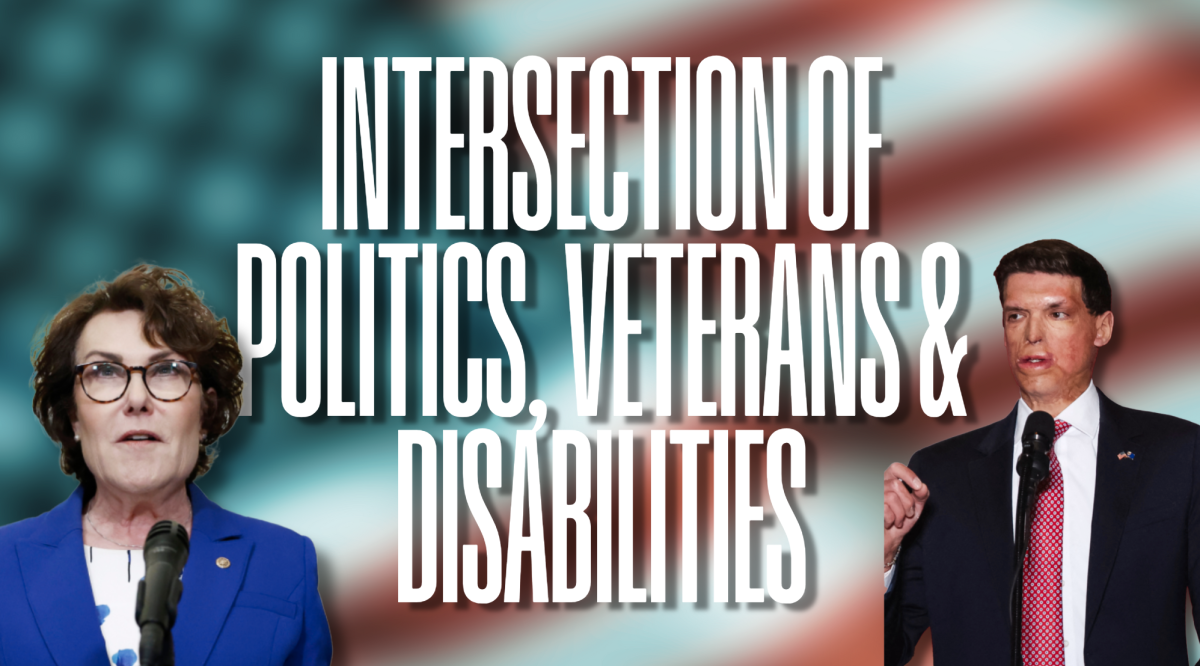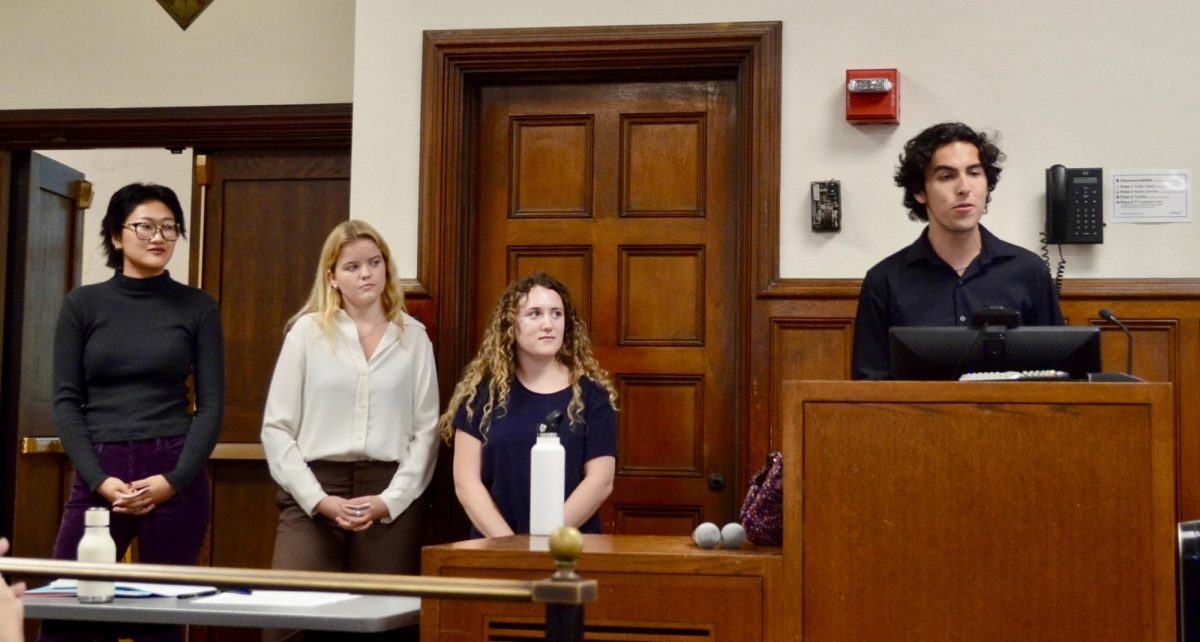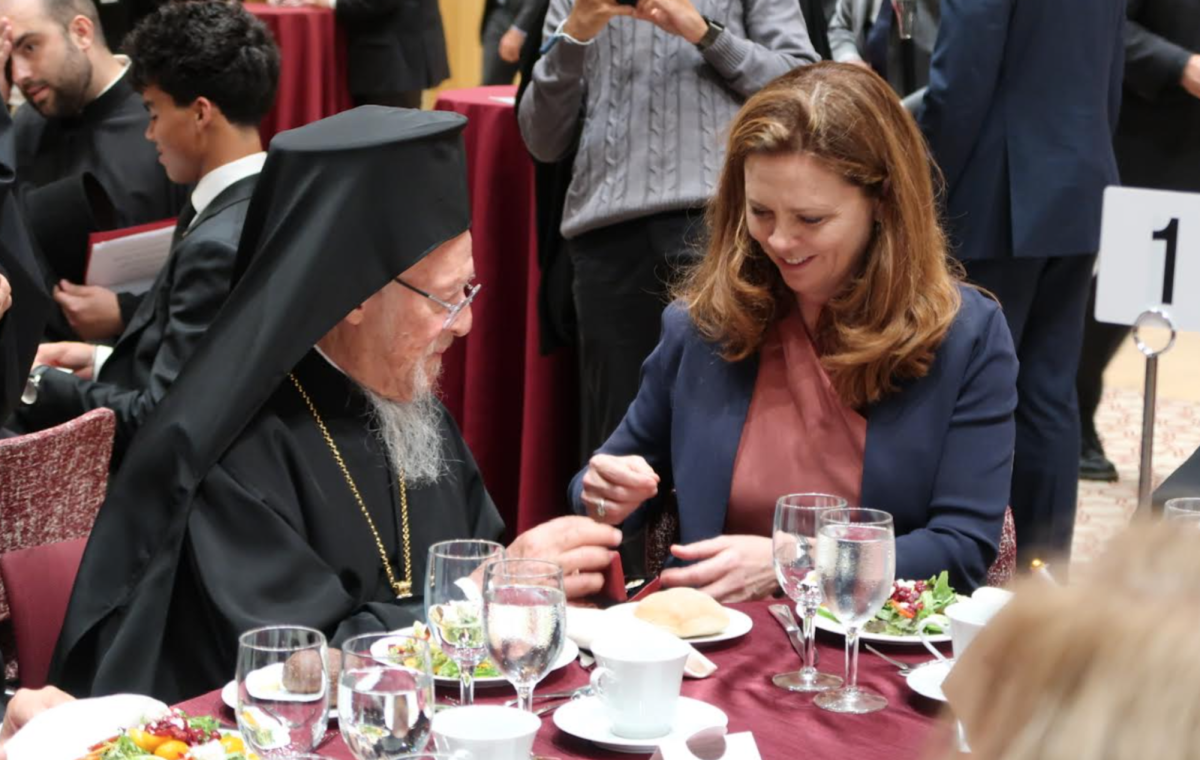By Erin Shanahan

After a highly contested evening, just before 3 a.m., Donald Trump was elected as President of the United States. Electoral votes won in the state of Wisconsin pushed Trump over the necessary 270 electoral votes to win the presidency.
In a historic upset, Trump, a former Fordham student, captured 279 electoral votes while his competitor, Secretary Hillary Clinton earned 228. However, Hillary Clinton acquired the popular vote of 59,591,635 votes compared to Trump’s 59,355,496 votes.
Trump won key battleground states including Florida, Pennsylvania, Wisconsin, Ohio and Iowa. Trump even managed to win out Michigan, a competitive state with 16 electoral votes that tends to lean Democratic. He also secured the usual republican strongholds such as Texas, Mississippi, Arkansas and even Arizona.
Trump’s victory may have resulted from his strength with voters who did not identified with either major party, according to The New York Times. In this year’s election, Independents made up 31 percent of voters. Trump won 47 percent of independent voters while Clinton only secured 42 percent.
In key battleground states, Trump built his support with voters who expressed discontent with the current government in Washington. Nearly nine in 10 of his voters in Florida said they were dissatisfied or angry with the state of the federal government, according to The New York Times. This demographic also disapproved of President Obama’s job performance. Three-quarters of the group felt that Obamacare “went too far.”
“Now it’s time for America to bind the wounds of division,” Trump said during victory speech at Trump Headquarters in New York City. “To all Republicans and Democrats and independents across this nation, I say it is time for us to come together as one united people. I pledge to every citizen of our land that I will be president for all Americans.”
Trump, who attended Fordham in the 1960s but did not graduate, was not the favored candidate of Fordham students, alumni and faculty according to a study conducted by The Fordham Ram between Oct. 22 to Oct. 29. According to the study, which had a sample size of 412 community members, 66.2 percent of respondents planned to vote for Clinton, 24.1 percent planned to vote for Trump, six percent planned to vote for libertarian candidate Gary Johnson, four percent planned to vote for Green Party candidate Jill Stein and 2.7 percent planned to vote for other candidates.
Students at Fordham’s viewing party expressed negative sentiments about the incoming results.
“Living in New York City, I don’t feel that we will be safe if Donald Trump wins,” said Amirah Brown, FCRH ‘17. “With all of the backlash that will come from, not only other countries but our own country and individual neighborhoods as well, it’s not going to be safe.”
Mana Hasegawa, GSB ’19, said his election proves ordinary Americans are disillusioned with the political process.
“For me, this is proof that there is giant disconnect between the average joe and the political beliefs of this country,” said Hasegawa. “This is an expression of working class people being angry at the system.”
Another student did not even consider a Trump election.
“I didn’t actually except that this was a possibility until now,” said Laura Lynch FCRH ’19. “The fact that Donald Trump’s candidacy is clearly a possibility proves that I have a lot to learn about the american people.”
The 2016 campaign was characterized by strong voter interest, but widespread dissatisfaction. According to research done by the Pew Research Center, overall satisfaction with the choice of candidates has never been lower in past 20 years. The Pew Research center report found that only 43 percent of Democrats and 40 percent of Republicans were satisfied with their choices for president.
About 41 percent said choosing between Donald Trump and Hillary Clinton was difficult “because neither would make a good president.” Only 11 percent reported that the choice was difficult because “either would make a good chief executive.”
This year’s presidential campaign was also viewed as excessively negative and not focused on important issues. According to the Pew Research Center, Only 27 percent of Americans felt that the campaign is “focused on important policy debates.”








































































































































































































Ben Arisen (@BrightLeaf88) • Nov 9, 2016 at 7:08 pm
We president now! MAGA